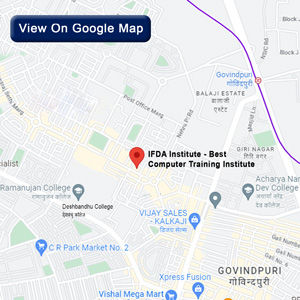List of Accounting Courses

Accounting is an important arm in any organization, regardless of its size. Accounting in businesses ensures the proper documentation of financial activities, adherence to the set laws, reduction of taxes, curb of fraud, and determination of the entity’s financial position. People who wish to pursue accounting as their career have a number of accounting courses to complete depending on their specializations. The following is a list of some of the major accounting courses you are likely to encounter:
Financial Accounting
Financial accounting involves the preparation of accounting statements that can be used to present financial information to third parties, such as investors and creditors.
Some of the key courses of financial accounting are:
- Introduction to Financial Accounting: Includes the accounting equation, rules of debits and credits, T accounts, general journal and ledger, adjusting entries, closing entries, and financial statements.
- Intermediate Financial Accounting: Extends the basic knowledge provided in the introductory course and offers additional information about how to account for assets, liabilities, equity, revenue recognition, and accounting changes and errors. More likely to expose you to more complex accounting issues.
- Advanced Financial Accounting: Incorporates more complex areas such as consolidation, foreign currency transactions, and preparation of financial statements for partnerships and governmental entities. This is useful in a sense that it prepares you for the real world in terms of dealing with accounting issues.
Managerial Accounting
Managerial accounting is more concerned with the provision of accounting information within the organization for planning, control, and decision-making tasks. Some key managerial accounting courses are:Some key managerial accounting courses are:
- Cost Accounting: Covers ideas and processes used to correctly allocate costs to products and services that the business provides, as well as how to employ cost information in decision-making.
- Budgeting: Discusses the planning, execution, and control procedures used for operational budgets. This includes knowledge of several budgeting methods.
- Decision Analysis for Managers: Explains and demonstrates different quantitative methods that can be used in decision-making within the business organization regarding issues such as price determination, additionality of product lines, acquisition vs. manufacture of materials, and capital expenditure, among others.
Tax Accounting
For those interested in helping individuals and corporations properly prepare tax forms and minimize their tax obligations legally and ethically, tax accounting courses would be beneficial:For those interested in helping individuals and corporations properly prepare tax forms and minimize their tax obligations legally and ethically, tax accounting courses would be beneficial:
- Federal Income Taxation: Review of the code of federal income tax as it applies to individuals. Includes and excludes gross income, deductions and exemptions, how to calculate tax, and completing tax forms and schedules.
- Corporate and Partnership Taxation: Analyzes the preparation and planning of federal income tax for corporations, partnerships, estates, and trusts. Provide coverage specific to these entities when it comes to taxes.
- Estate and Gift Taxation: Provides information regarding federal tax laws on estate and gift taxation. It involves the evaluation and determination of gross estate, allowable deductions, and credit in arriving at the taxable estate.
- Tax Research & Planning: Exploring the various strategies involved in the research of taxes as well as planning that is done to ensure that tax forms are filled correctly and taxes are paid as less as possible.
Auditing
For accountants interested in analyzing and verifying the accuracy and compliance of financial records, auditing courses focus on auditing theory and practice:For accountants interested in analyzing and verifying the accuracy and compliance of financial records, auditing courses focus on auditing theory and practice:
- Auditing Theory & Practice: Fundamental principles of auditing theory that include audit evidence, risks, testing of internal controls, audit sampling, audit reports, and standards. Practice those concepts in hypothetical audit situations.
- Information Systems Auditing: Concentrates on auditing accounting information systems and IT control to guarantee the availability, integrity, and confidentiality of information.
- Internal & Operational Auditing: It includes specific training related to the internal audit profession where auditors assess internal control, compliance, operation, and other aspects of an organization.
Conclusion
The list of accounting courses above outlines some of the general courses depending on the specialty of an accountant. Whether the focus is on financial accounting and reporting for external or internal use, taxation, auditing, or management accounting and analysis, it is best to take a combination of core courses and specific courses that will enable students to handle real-life accounting issues. Students should look for schools that enable them to take classes in areas of their interest in relation to the chosen field.
- Written By - Natasha Singh









